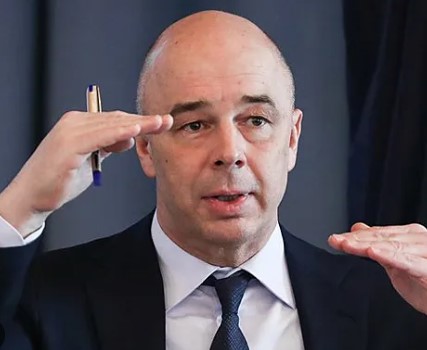The Central Bank named the most painful sanctions against the financial system

Freezing the assets of private Russian investors has become a “very painful topic” in the list of sanctions that were introduced after the start of Russia’s military operation in Ukraine against the Russian financial system, Central Bank Chairman Elvira Nabiullina said in an interview with RBC . She also called sanctions aimed at stopping international payments a problem.
The head of the Central Bank recalled that the regulator had been assessing the risks of increasing sanctions since 2014 and was largely prepared for many of them. “Large banks, when they came under sanctions, were already largely prepared for this to happen. Disconnection from SWIFT has been a threat since 2014, so they were building a national payment infrastructure. We diversified our reserves and increased the share of yuan and gold,” Nabiullina noted.
The reserve freeze, she said, was “a very negative signal for all central banks because it is a violation of the basic principles of reserve security.” “But here we were also helped by the floating exchange rate and foreign exchange restrictions, which we adopted quite stringently last spring,” she recalled.
“The problem, that’s exactly the problem, has become international payments, they are still a problem, although we are trying to solve it. Of course, the blocking and freezing of assets of private individuals - millions of people who were not subject to sanctions, but ended up with frozen assets - became a very painful topic,” added the head of the Central Bank.
Nabiullina did not rule out increasing sanctions pressure. “The sanctions policy is completely impossible to predict. But we are calculating a scenario with increasing sanctions pressure, and every year we present [it] in the “Main Directions of Monetary Policy.” This risk certainly exists,” she emphasized.
Open up new opportunities in 2024
With a subscription to “All RBC Pro” with a discount of up to 45%
Buy at a discount“Of course, there is a temptation to think that we went through 2022 so well and now we are, as they say, knee-deep in the sea. But we must be prepared to increase sanctions pressure,” the head of the Central Bank warned. “We were able to respond to the main challenges, if we talk about the financial sector, but there are also problems in the financial sector that have not been fully resolved, including cross-border payments. Yes, chains are being built, they are constantly changing, but this still remains a problem for many enterprises,” Nabiullina said.
On February 21, 2022, Russia recognized the independence of the Lugansk and Donetsk people's republics, and on February 24, it began a military operation in Ukraine. Immediately after this, the United States , the European Union, and Great Britain introduced strict blocking sanctions against large Russian companies, banks, as well as against the international reserves of the Russian regulator - reserves denominated in dollars and euros were frozen. At the beginning of March, the two largest international payment systems - Visa and Mastercard - stopped servicing cards issued by Russian banks abroad, which meant that it was impossible for citizens to make cross-border payments using these cards. Banks subject to sanctions also lost the ability to conduct transactions on correspondent accounts in dollars and euros in the interests of their clients. The assets of private Russian investors, namely investments in securities, were frozen if their records were kept by Western depositories Clearstream and Euroclear.
Fate of frozen assetsAccording to the Central Bank, more than 5 million private investors had blocked assets in their accounts. The value of frozen shares in the portfolios of individuals in July last year amounted to 320 billion rubles.
On November 8, President Vladimir Putin signed a decree allowing the exchange of assets between Russian private investors and non-residents: according to it, Russians will be able to sell their frozen securities to foreigners, and they will redeem them with money from Russian type C accounts (such accounts have limited functionality, the funds are actually blocked) .
Participation in the exchange will be voluntary for investors, and the total application amount for each participant in this process cannot exceed 100 thousand rubles. The head of the Ministry of Finance, Anton Siluanov , estimated that the exchange mechanism could affect the investments of about 2.5 million Russians who have blocked assets abroad.
The legal conditions for the exchange of assets have been created, but the activity of the process depends on the interests of foreigners, Nabiullina commented: “In our opinion, this can be mutually beneficial for investors. But then everything depends on the investors themselves, primarily non-residents. I don’t have any information yet about whether they did or didn’t request [permission].”
According to Nabiullina, the risks of investing in foreign securities for Russian private investors remain.
“Of course, there are risks of investing in foreign securities even through the infrastructure of friendly countries. We warned about them and obliged brokers to inform clients about such risks. It’s one thing - you work in Russian jurisdiction, another thing - you take on the risks of a foreign jurisdiction. We see that our concerns were not in vain, because many investors who owned foreign securities through the infrastructure of friendly countries encountered problems. Now, due to the risk of secondary sanctions, these organizations carry out lengthy compliance procedures,” the head of the Central Bank noted in an interview.
According to the regulator, Russians have significantly reduced investments in foreign securities - from almost $7 billion in February 2022 to approximately $3 billion as of November 2023.



























































